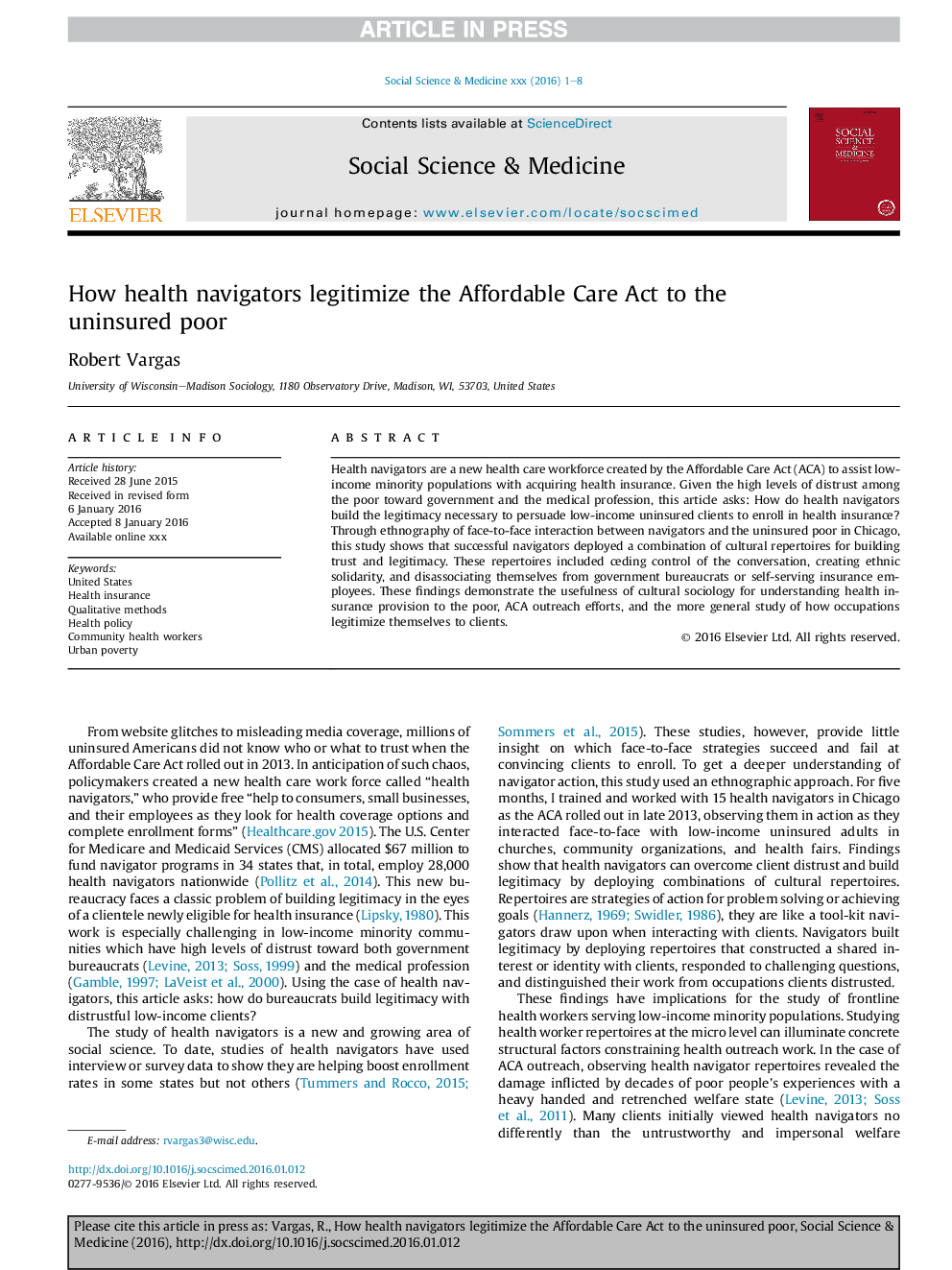| Article ID | Journal | Published Year | Pages | File Type |
|---|---|---|---|---|
| 7329362 | Social Science & Medicine | 2016 | 8 Pages |
Abstract
Health navigators are a new health care workforce created by the Affordable Care Act (ACA) to assist low-income minority populations with acquiring health insurance. Given the high levels of distrust among the poor toward government and the medical profession, this article asks: How do health navigators build the legitimacy necessary to persuade low-income uninsured clients to enroll in health insurance? Through ethnography of face-to-face interaction between navigators and the uninsured poor in Chicago, this study shows that successful navigators deployed a combination of cultural repertoires for building trust and legitimacy. These repertoires included ceding control of the conversation, creating ethnic solidarity, and disassociating themselves from government bureaucrats or self-serving insurance employees. These findings demonstrate the usefulness of cultural sociology for understanding health insurance provision to the poor, ACA outreach efforts, and the more general study of how occupations legitimize themselves to clients.
Keywords
Related Topics
Health Sciences
Medicine and Dentistry
Public Health and Health Policy
Authors
Robert Vargas,
